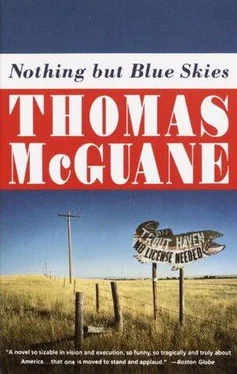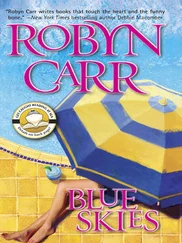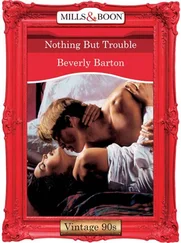Frank nodded gamely but he really didn’t get it. “How much this thing gonna come to?”
This gave Mirabelle time for thought. That was her name and she asked to be called Dr. Mirabelle, an odd mixture of formal and informal. In his confusion, he still viewed her as a dry drunk, though he wasn’t sure what it was.
“You’re changing the script, Frank. We’re talking sideways anger, here. Attempts to control me through undermining questions about my financial arrangements with you or any other patient will go, you’ll find, nowhere.”
“You don’t have to stare me down. It was an innocent question.”
“Sixty dollars! I’m not ashamed of being recompensed for my hard work. You can take your control questions elsewhere. That issue fails to appear on my agenda.”
“Everything I say seems to upset you so much,” he said nervously, fishing his checkbook from his shirt pocket.
“It’s not ‘about’ being upset,” she shouted. “I’m not buying into that!”
He wrote frantically. It was like spending sixty dollars to get out of jail. He slid the check across the desk. She made as if she didn’t even see it. Her lips were so pursed, it looked like someone had just stolen her cigar.
“In all honesty,” Frank said, “this sort of thing doesn’t really seem right for me. Crazy as it may seem to you, I feel sort of abused myself, kinda gypped.”
“Welcome to the human race,” she said. “It’s about welcome. It’s about accepting your ordinariness. It’s about finding meaning in the everyday.” Frank sensed she was trying to jam in some advice to make this sixty-dollar bum deal seem more palatable. “It’s about letting go, Frank, and sensing a sharing that takes place for those who know what it is to be human.” Frank left her seated at her desk, knowing that when he was out of sight she would pick up his check and that, painful as it might be, it was somehow “about” cashing the check.
And at the same time, he felt poorly. Most everyone he knew was in a program for recovery. He had felt quite isolated by not joining something, had never really felt anything applied to him, but he got the very strong message that he had not tried hard enough. Gracie really wanted him in a program and he would have been willing to meet her halfway, but somehow they got lost in all the choices, all the initials. Now, in his first skirmish and probably his last, he had failed. It was better to have never tried at all than to have failed a program so abruptly. It was as bad as feeling all right, when it seemed to be plain to everyone that this was a sign of his detachment from his true inner feelings. It was like flunking life. The dialogue dropped away and even his considerate and hopeful fibs about “the child within” sagged pitifully. He felt like some bogus stoop who didn’t actually have a child within. Certainly, Edward Ballantine had one, even as big and hairy as he was. That might have accelerated Gracie’s departure.
Instead of going to his appointment with the therapist, a new one named Bob, Frank drove back toward town, went into the Long Haul Saloon and had a glass of draft beer. He used the pay phone to call the receptionist and cancel his appointment. He told her that he had “this thing that’s been going around.” When he went back outside, squinting into the sunshine, he found the police preparing to tow the station wagon and was impressed by their efficiency in locating the vehicle. He walked over to Powell Street, bought the paper and caught a westbound bus with but three people aboard. Two were girls who seemed to be sisters in their early teens, with similar bangs and anachronistic pageboy haircuts that looked homemade — country girls who averted their eyes, looked at each other and smothered grins by burying their chins on their chests. The other passenger was a trucker with a four-day beard, leather vest and chrome chain leading to his back pocket.
Riding back toward home, with no obligation for guiding the vehicle, sitting with strangers, he savored the anonymity and wondered if the mild euphoria was based on simple movement or avoided responsibility. On the other hand, what was his responsibility? He was eating, he was clothed, he was out of the rain. He was making his way to the edge of the flat earth. He wasn’t as driven as the people who, to protect their own product, circulated the rumor that Corona beer contained dog urine, nor the New York soft-drink interests who claimed Tropical Fantasy soda pop was manufactured by the Ku Klux Klan and contained ingredients for sterilizing black males. Air Sununu was grounded. And the art market was in a recession. “Unlike stocks and bonds, many works of art are unique,” said the Wall Street Journal . And in the wake of a Royal Dutch/Shell Group refinery fire, the price of crude was up while pork bellies settled sharply. Constant busyness out there, no time to think, but the four of us on this bus are lost in our thoughts, our fortunes turned over to the man in gray up front there at the wheel who drives us but never indicates his intentions. Frank allowed his gaze to settle on the driver, feeling despair at the smooth movement of his hands on the wheel.
Summer was beginning and Crest would be available in a new dispenser that sucked unused toothpaste back into the container when the customer stopped squeezing. It really looked like it would be a beautiful summer. Queen Elizabeth II planned to attend her first baseball game and might try a hot dog, though it was made clear that she could distance herself from the hot dog, since in British tradition the queen cannot express private views.
Even though his doctors abandoned his building without warning and with a month’s rent unpaid, Frank at first avoided thinking about it at all. But when he drove past and found the lights off and a youngster practicing wheel stands on his bicycle in the sprinkler-softened ground, he felt that the clinic needed to be taken care of and carefully rerented and managed. He pined for video games with the blubber-thick crack addicts of the Far North. Those knife-wielding Eskimos would have made short work of these rent-dodging white boys. He was slow to face the implications of the emptying of his clinic. It was, as they say, a highly leveraged transaction in the first place.
If the prospects of failure had crept toward him from the day Gracie left, they were now at a full gallop. He quickly reckoned whether he could slow this down. He was conscious of a kind of force bearing against him. He drove toward home but then stopped in front of his office. He got out and looked around as though checking the address. The wind up the street frightened him. It seemed like the movie wind that blows away footprints.
Two cattle buyers from Nebraska were in his office, smelling of the lots and the diesel fuel of the outbound loads, with snap-button cotton shirts, Copenhagen lumps under their lower lips and Stetson Open Road hats pulled just over the tops of their eyes. The older of the two wore eyeglasses with colorless frames. He had buck teeth and looked like he never smiled in his life, not once. His counterpart had a round chipmunky face and eager brown eyes.
Frank started out by denying everything. He spoke with a booming voice he used only around cattle buyers. His mind quietly ran on in several directions, one of which was that the bank, noticing poor crop-growing conditions and consequent low feeder replacements, was desperately trying to keep themselves, and Frank, from taking a bad blow. The bank must have alerted these boys. Force him to take the loss now and suck it out of his other collateral. The wind was blowing away his footprints.
“What do you mean, I stole those cattle?” Frank boomed.
“I don’t mean literally stole,” said the older man.
Читать дальше












